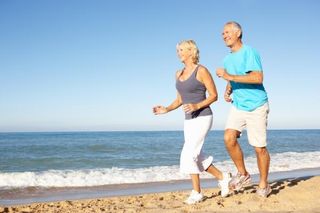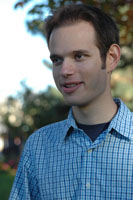Exercise Keeps Memories Safe from Infection's Effects

Exercise counteracts the memory decline that can occur after an infection, a new study of mice suggests.
The research adds to a growing body of evidence that exercise may help preserve cognition in the elderly. It may be that exercise reduces inflammation in the body that would otherwise contribute to cognitive decline, however the exact reason for the link remains unclear, the researchers said.
Researchers at the University of Colorado experimented on elderly mice, some of which they infected with a strain of E. coli. The mice were then tested to see how well their memories worked.
"When an aged animal gets an infection, a bunch of things happen in the brain that impair memory processes," said study researcher Ruth Barrientos. "What we found is that a little bit of exercise basically reverses or blocks a lot of those changes from happening."
Barrientos said that while studies of exercise in elderly people may focus on those who can still perform youthful levels of exercise, her research indicates that even moderate levels can yield these beneficial results.
Of mice and memories
The researchers placed mice in boxes with a number of visual cues on the wall, and delivered a mild electrical shock. The mice's memory was tested by placing them in the same box several days later and observing whether and how often they froze, a sign that a mouse remembers a shock.
Sign up for the Live Science daily newsletter now
Get the world’s most fascinating discoveries delivered straight to your inbox.
The researchers found that mice that exercised after being infected with E.coli froze about as often as mice that had not been infected. Those who had been infected but did not exercise did not freeze as often, indicating worse memory.
"We found that these animals run nearly 50 times less than a young animal and yet were able to garner all of the positives of exercise without having to run a marathon," Barrientos said. The research shows that "your average elderly Joe can just do a bit of consistent regular exercise and protect against the effects of infection in aging."
Exercise & memory in people
While mice were the subjects of these findings, the role of exercise in warding off dementia in people has been an ongoing area of inquiry.
This latest research may give some further indication of how exercise and other prevention strategies for dementia actually work, said Dr. Gary Small, director of the UCLA Longevity Center and author of the forthcoming book, "The Alzheimer's Prevention Program."
"There seems to be a theme in the scientific evidence regarding brain health and aging, and that brain health relates to inflammation," said Small, who was not involved in this research.
Small said of some of the strategies recommended for older people to reduce the risk of Alzheimer's, such as eating fish, "those approaches are also anti-inflammatory."
Physicians have investigated anti-inflammatory drugs — both prescription drugs such as COX-2 inhibitors and nonprescription drugs such as ibuprofen — to see if they have an effect on memory. At present, the mixed results suggest they may help in prevention but hurt once decline has begun.
Exercise has been thought to be beneficial but the reasons were unclear; some researchers have suggested it improves circulation or brings more nutrients to the brain, Small said. But the inflammation connection presents another possibility, and exercise is a treatment that does not involve medication.
"We actually like to recommend less-toxic approaches," Small said. "And exercise is a very important strategy to protect brain health and to help people live longer and live better."
The research appears in the Aug. 10 issue of The Journal of Neuroscience.
This story was provided by MyHealthNewsDaily, a sister site to LiveScience. Follow MyHealthNewsDaily on Twitter @MyHealth_MHND.
Most Popular



